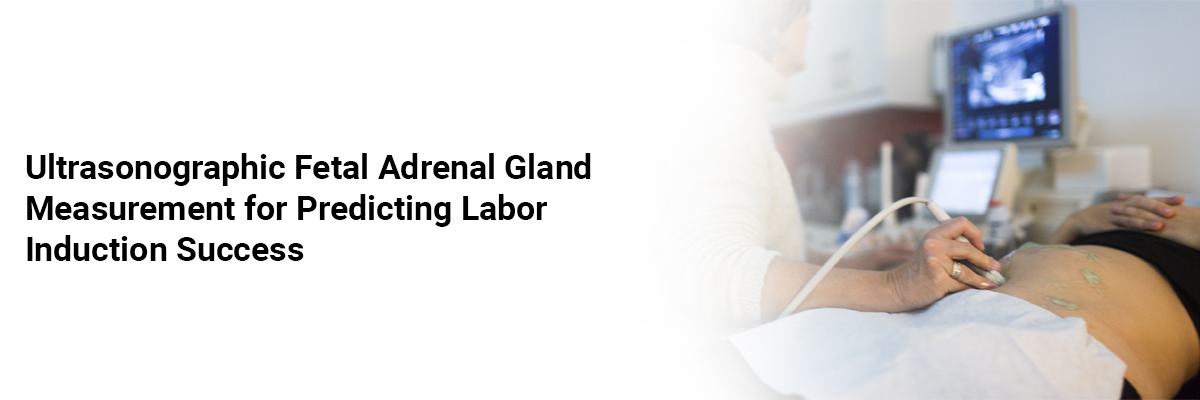
 IJCP Editorial Team
IJCP Editorial Team
Ultrasonographic Fetal Adrenal Gland Measurement for Predicting Labor Induction Success
Pregnancy progression beyond term increases the risk for perinatal
morbidity and mortality. To mitigate the complications associated with
post-term pregnancy, labor induction is routinely performed between 40 and 41
weeks of gestation - in accordance with protocol. However, labor induction has
drawbacks – necessitating the identification of women at high risk of induction
failure to prevent the associated morbidities.
A new study examined the role of ultrasonographic fetal adrenal gland
enlargement in predicting the success of labor induction––among primigravida
beyond 40 weeks gestation.
This study included low-risk primigravidas beyond 40 weeks gestation,
scheduled for labor induction. Fetal adrenal gland dimensions were measured
using an abdominal probe, such as Philips HD 7XE and general electronics logiq
P6 pro, or any ultrasound machine equipped with a 7.5–10 MHz linear array probe
and 3.5–5 MHz curved array probe.
The findings revealed statistically significant differences in fetal
adrenal gland length, width, and ratio between the groups with successful and
failed inductions. A fetal zone ratio exceeding 0.36 emerged as a cutoff with
90% sensitivity, 89% specificity, 93% positive predictive value (PPV), and 75%
negative predictive value (NPV) for predicting successful induction.
Therefore, fetal zone enlargement – specifically a fetal zone ratio exceeding 0.36, proved to be a robust predictor of successful labor induction compared to traditional parameters like TVL and Bishop’s score. This parameter can be employed for screening women at risk of labor induction failure in selecting appropriate candidates for successful labor induction.
Source: Sharma R, Kumari A, Tandon A, Suneja A,
Guleria K. The Journal of Obstetrics and Gynecology of India. 2023
Oct;73(5):406-13.

IJCP Editorial Team
Comprising seasoned professionals and experts from the medical field, the IJCP editorial team is dedicated to delivering timely and accurate content and thriving to provide attention-grabbing information for the readers. What sets them apart are their diverse expertise, spanning academia, research, and clinical practice, and their dedication to upholding the highest standards of quality and integrity. With a wealth of experience and a commitment to excellence, the IJCP editorial team strives to provide valuable perspectives, the latest trends, and in-depth analyses across various medical domains, all in a way that keeps you interested and engaged.






















Please login to comment on this article